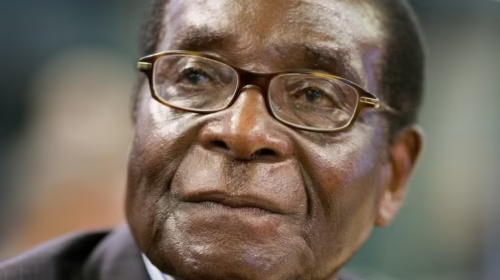Government Scrambles to Address Civil Servants’ Wage Crisis: The depreciating value of the Zimbabwean dollar (ZiG) has caused civil officials’ earnings to plummet, and as a result, the government is facing mounting pressure to provide assistance. This is because civil servants’ incomes are at risk of declining further.
The government plans to increase worker salaries, which Finance Minister Mthuli Ncube recently announced. While this measure may lessen the impact on the economy, it is unlikely to give people who are employed full respite.
Following President Mnangagwa’s October 2 State of the Nation Address (SONA), in which he emphasised measures to stabilise the nation’s economy, Ncube made his announcement. The minister made it clear that although the government is working to raise civil servant pay, the purchasing power lost as a result of the severe decrease in the value of the currency will not be fully restored by these increases.
Ncube claims that the devaluation was justified by the government in order to close the growing difference between the official and parallel market exchange rates, which has increased inflationary pressure on basic products and incomes alike.
Given the volatility of the ZiG, adjustments to civil sector pay may be necessary, but as Ncube pointed out, the answer is far from complete. He was blunt in his comments, admitting that there is always going to be some pain associated with any program, especially one that involves devaluation of the currency.
The government’s pledge to “somewhat restore” salaries illustrates how complicated Zimbabwe’s current financial situation is. This “somewhat” might not seem like much to federal servants, who are already struggling with rising living expenses.
The Zimbabwe Confederation of Public Sector Trade Unions (ZCPSTU), which represents civil officials, has made no secret of its displeasure with the government’s policies. Union leaders vehemently rejected the government’s offer of a Cost of Living Adjustment (COLA) at a recent National Joint Negotiating Council (NJNC) meeting, choosing instead to take the issue up with higher authorities for further in-depth negotiations.
The denial highlighted the stark contrast between what the government provides and what federal personnel consider to be essential for subsistence.
As things stand, civil servants will probably still experience the pain of devaluation notwithstanding a pay rise. Public sector workers will be worse off even with more Zimbabwean dollars in their pockets if wage hikes are implemented without considering the full impact of inflation and price rises.
It is unclear how long civil servants can withstand these financial circumstances before more widespread unrest becomes inevitable due to the ongoing conflict between government policy and labour demands.
The devaluation has wide-ranging effects on all sectors, therefore the uncertainty surrounding Zimbabwe’s economic policies goes beyond the public sector. The ZiG’s decrease has contributed to inflation, which keeps raising the cost of goods and services and increasing everyone’s cost of living.
The government’s piecemeal changes may appear more like firefighting than a long-term economic plan in such an environment.
It is important to remember that even while these pay increases are minimal, they at least indicate that the authorities have realised the status quo cannot continue. Managing Zimbabwe’s economy in the midst of so many moving parts—from fighting inflation to attempting to stabilise the value of the country’s currency—is a difficult task.
Nonetheless, the voices of civil servants—the backbone of the public sector—serve as a sobering reminder that the economic recovery cannot be deemed fully realised until the people who maintain the government are able to personally benefit from it.
It is yet to be seen if the government would hold substantive discussions with civil servant unions in order to develop a more workable approach. Despite their current lack of success, the NJNC negotiations provide a vital platform for all parties to voice their complaints and work towards a more just resolution.
The ZCPSTU’s move to intensify talks is a reflection of the mounting annoyance of public employees, who perceive that their pay is insufficient given the constant increases in costs and the declining value of the currency each month.
In a larger sense, Zimbabwe’s public sector wage dilemma is but one element of a conundrum in an economy that has been severely damaged by poor investor confidence, inflation, and unstable currency.
How long can short-term measures like pay raises defer a more significant reckoning, while the government treads these dangerous waters? A more comprehensive economic reform strategy is becoming more and more necessary, not just for the nation as a whole but also for the government officials.
Civil servants know that any genuine solution will need more than little tweaks to their salary; they can only hope that more discussions will result in a more favourable outcome. The leaders of Zimbabwe will need to exercise caution as they try to strike a balance between economic changes and the pressing needs of their labour force since the stakes are quite high.
More: The Zim Bulletin












